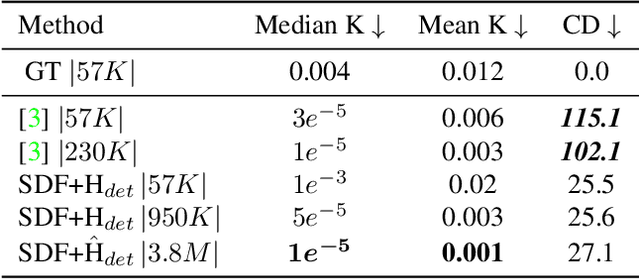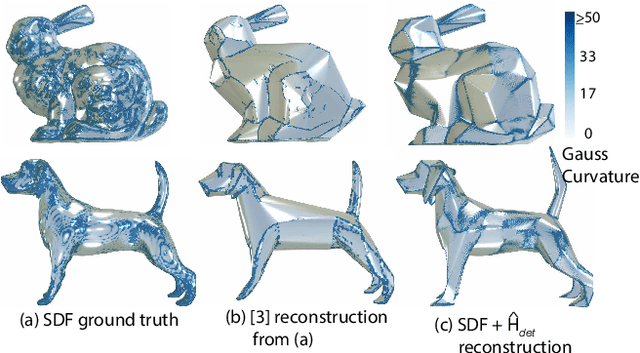Developability Approximation for Neural Implicits through Rank Minimization
Paper and Code
Aug 14, 2023



Developability refers to the process of creating a surface without any tearing or shearing from a two-dimensional plane. It finds practical applications in the fabrication industry. An essential characteristic of a developable 3D surface is its zero Gaussian curvature, which means that either one or both of the principal curvatures are zero. This paper introduces a method for reconstructing an approximate developable surface from a neural implicit surface. The central idea of our method involves incorporating a regularization term that operates on the second-order derivatives of the neural implicits, effectively promoting zero Gaussian curvature. Implicit surfaces offer the advantage of smoother deformation with infinite resolution, overcoming the high polygonal constraints of state-of-the-art methods using discrete representations. We draw inspiration from the properties of surface curvature and employ rank minimization techniques derived from compressed sensing. Experimental results on both developable and non-developable surfaces, including those affected by noise, validate the generalizability of our method.
 Add to Chrome
Add to Chrome Add to Firefox
Add to Firefox Add to Edge
Add to Edge